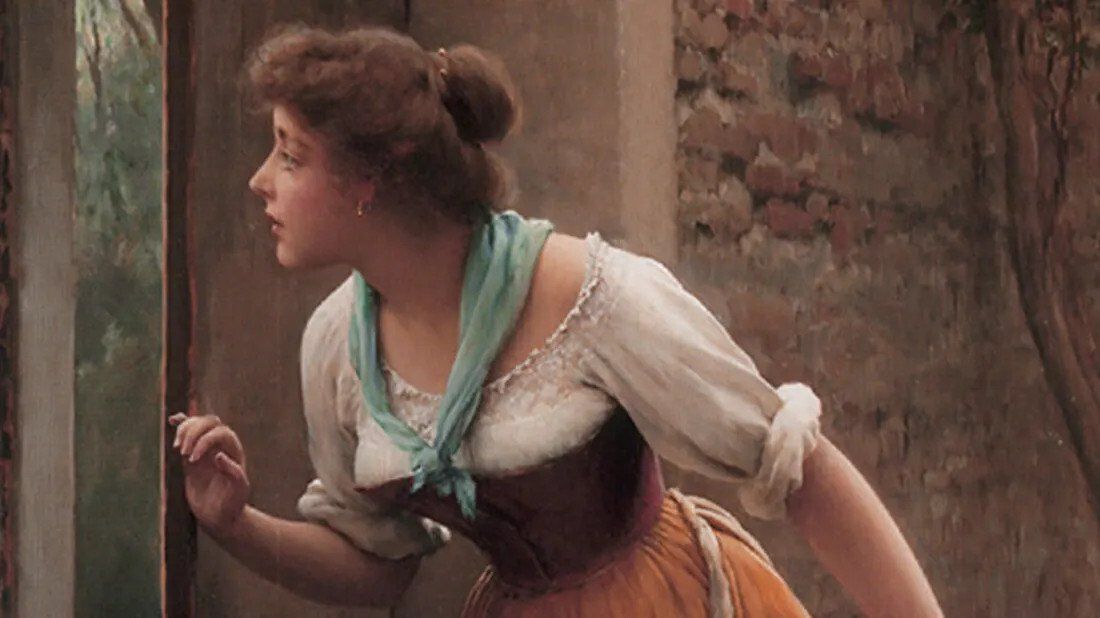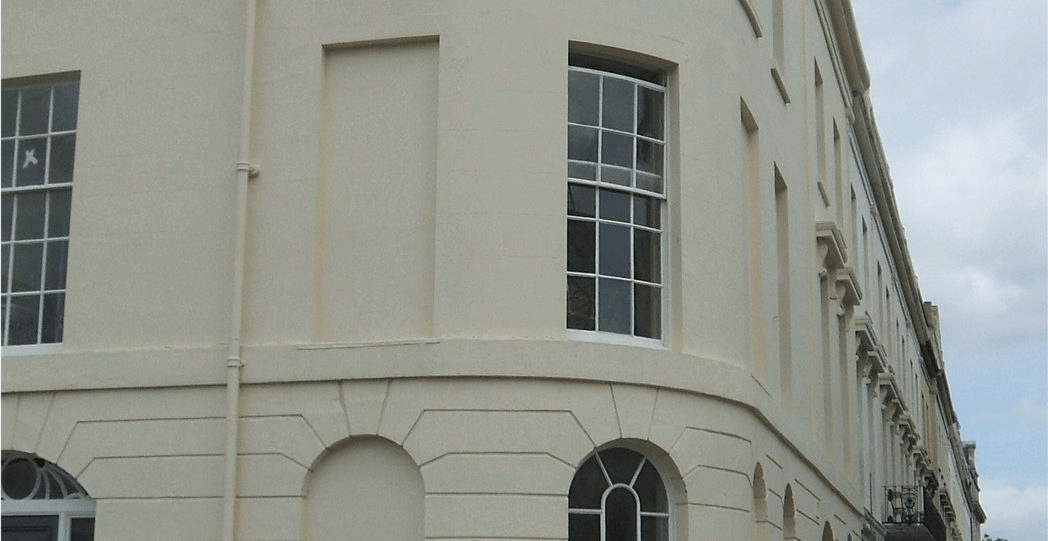The Fascination of Language (Part 1: Who’s Thomas.... And Why is he Doubting?)
5 Minute Read - I’ve always been fascinated by language. For the lucky ones, it’s something that has been learned, and now comes so effortless, on our journey to becoming adults. I’m constantly fascinated by people who can speak multiple languages... and even more so towards people who can inject their own culture into conversations not in their native tongue. In this two-part language series, I’ll take a look at phrases, idioms and words, starting with commonly used phrases and the origin behind them. All thoughts and views are my own.
Eaves Dropping
We all know eaves dropping to mean secretly listening to another’s conversation, but what is the origin of this phrase? Well, I must admit, when I was younger, I originally thought that this phrase was ‘ears dropping’. To me that made sense as it was something to do with listening. It was only when I was talking to a friend of mine a long while ago, I realised the true meaning behind the phrase. When you delve into the literal description of the words, an eave is the part of the roof that overhangs the walls of a building. An eaves drop originally referred to the water that fell from the eaves of a building, and later referred to the location on the ground to where that water fell. In medieval times, there was a legal restriction on buildings to have a perimeter around the eaves so the water falling would not destroy the neighbour’s property. Some people used to congregate within this perimeter under the eaves in order to listen to what was being said inside the walls. These people were described as eaves droppers.
Figure 1: Eavesdropping
Daylight Robbery
What seems like forever ago, I was travelling back from a Dublin conference in a taxi and I was met with the usual barrage of quick-wittiness, funny stories, and sarcasm that you would expect from a Dublin taxi driver. On this occasion, it was interspersed with some nuggets of historical knowledge; one being related to the old Georgian styled buildings we passed by and the size of their windows, and in some cases, bricked up windows. Back in the 1690s, William III introduced Window Tax in England which required people to pay tax based on the size of the windows and also how many windows they had in their building. This law was imposed on Ireland in 1799, before finally being repealed in 1851 (The Irish Times, 2000). As a way to combat the law, buildings started to reduce the size of their windows and even started to brick them up. Some of the older traditional Irish rural homes started to build half-doors as a way to let light in by opening the top half and keeping their animals out by closing the bottom half. As a result of this reduced daylight, the term “Daylight Robbery” was coined.
Figure 2: Bricked-Up Windows
Nip it in the Bud
Another one I used to get wrong… please tell me I’m not the only one. I was more anatomical in my expression of “Nip it in the butt”, but this time it has nothing to do with anatomy. Meaning to put an end to something before it gets worse, this phrase is referenced from horticulture where cutting a bud from a plant prevents the bud from blossoming into a flower or fruit. Although in saying this, some plants thrive when their buds are trimmed correctly, so a more aligned metaphorical meaning to “nip it in the bud” could be to end something sooner to get a better outcome.
Figure 3: Nip it in the Bud
Moaning Michael
Now before we move onto Thomas, we’ll take a short stop at Michael. Unfortunately, this isn’t too exciting and the only thing I could find on this is that we generally just like to alliterate and rhyme adjectives with given names (e.g. Skinny Minnie, Silly Billy). If you’ve heard of this phrase and don’t know where you heard it from, it could be from Father Noel Furlong (played by Graham Norton) in Father Ted.
Video 1: Father Ted
Doubting Thomas
I think one of the reasons I’m such a positive person is because as a child, my mother would tell me to believe in and never doubt myself like Thomas did. I used to think that Thomas must be the most pessimistic person, but who is he and what can we learn from him? Well in general, the phrase “Doubting Thomas” is used to describe someone who is skeptical and fails to believe until they have experienced it for themselves. The term dates back to and has religious connotations to Thomas the Apostle who failed to believe the resurrection of Jesus until he witnessed the wounds himself.
But is doubting such a bad thing? In a 2007 article at America Magazine, Gerald M. Fagin, associate professor of theology at Loyola University, argues that “doubters like Thomas can be great teachers if they prompt us to examine our own faith” (America Magazine, 2007). But on the other side, sometimes doubt can disable your ability to believe even when you are in an environment full of people you trust.
Figure 4: Doubting Thomas
Final Thoughts
When you think about communication through language, it’s incredible how we have evolved to interact with each other in a legible way. The addition of technology has enabled us to converse and discuss thoughts, emotions, and opportunities in real-time with people from different parts of the world. No one has all the answers and there will always be elements that we will never understand. Having that small bit of doubt in order to raise questions or voice concern until you are comfortable with all the facts, is a good thing. While we continue to get comfortable being uncomfortable, and hopefully returning to some sort of normality, it’s important to stay positive, stay focused, and stay kind. If we’ve ever needed that sense of community and working together, it’s now.
What are some phrases that you like and the origin behind them?
References
- America Magazine. (2007). A Doubter Gives Lessons in Faith. [online] Available at: https://www.americamagazine.org/issue/633/faith-focus/doubter-gives-lessons-faith/ [Accessed 02 February 2021]
- Figure Cover. (2019). Inclusive Language Guide. [online] Available at: https://counseling.northwestern.edu/blog/inclusive-language-guide/. [Accessed 02 February 2021]
- Figure 1: Eavesdropping. Mental Floss. (2013). How Eavesdropping Was Punished in Medieval Times. [online] Available at: https://www.mentalfloss.com/article/51282/how-eavesdropping-was-punished-medieval-times. [Accessed 02 February 2021]
- Figure 2: Bricked-Up Windows. Wikipedia. (2021). Window tax. [online] Available at: https://en.wikipedia.org/wiki/Window_tax. [Accessed 02 February 2021]
- Figure 3: Nip it in the Bud. Medium. (2019). Preparation Prevents Paralysis. [online] Available at: https://medium.com/the-book-mechanic/preparation-prevents-paralysis-d9df411de129. [Accessed 02 February 2021]
- Figure 4: Doubting Thomas. (2020). Is it Fair to Call Today’s Saint “Doubting Thomas?”. [online] Available at: https://catholicexchange.com/is-it-fair-to-call-todays-saint-doubting-thomas/ [Accessed 02 February 2021]
- The Irish Times. (2000). Windows of opportunity. [online] Available at: https://www.irishtimes.com/life-and-style/homes-and-property/windows-of-opportunity-1.236073. [Accessed 02 February 2021]
- Video 1: Father Ted. (2013). Who’s a bit of a Moaning Michael tonight!
- . [online] Available at: https://www.youtube.com/watch?v=YP5t5rdRoN0
- . [Accessed 02 February 2021]















